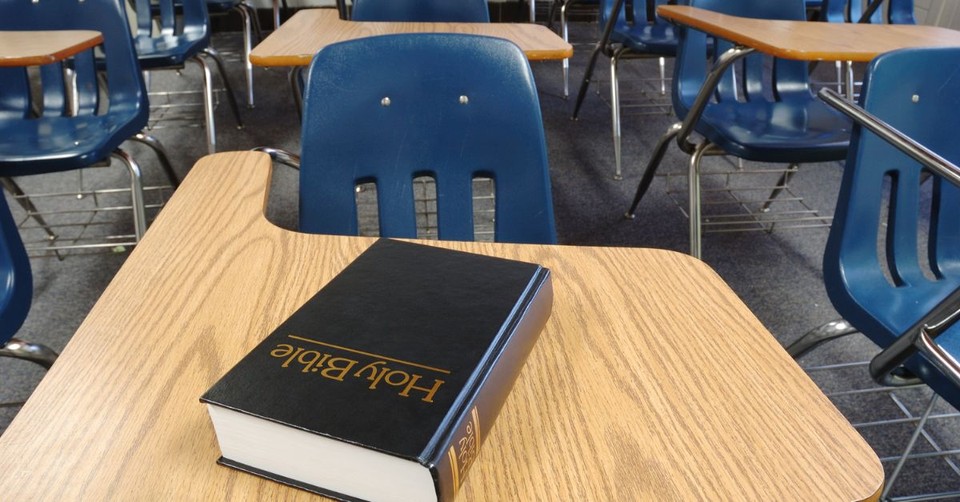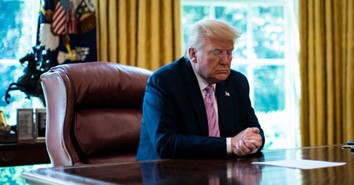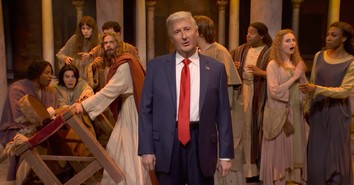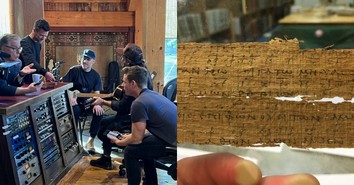5 Concerns on Oklahoma's New Bible in School Mandate

Oklahoma State Superintendent Ryan Walters recently mandated that a Bible be in every classroom in the state and that all teachers teach from it. Here is part of what he said when making this announcement. “The Bible is one of the most historically significant books and a cornerstone of Western civilization, along with the Ten Commandments…This is not merely an educational directive but a crucial step in ensuring our students grasp the core values and historical context of our country.”
Some people who heard this mandate saw it as a cause for celebration. I even had people sending me emails praising this decision. However, when I listened to this announcement, I didn’t find an immediate desire to celebrate. Instead, I felt the alarm bells ringing in my heart.
Before I go further and before you think I am crazy, I love the Bible, and I love to teach the Bible. I believe as Christians, our mandate is to be salt and light and to live a life that reflects Christ and points people to him. To do this, God’s word is foundational to how we should live as followers of Jesus. Yet, this decision still disturbed me when I heard it. The more I thought about it, the more I wondered if there are some things people have not totally taken into consideration. Have we counted the cost of what this could mean? Is it possible that we will look back and see that instead of this being something we praise, we have actually opened a Pandora’s box?
Five questions to ask surrounding this announcement
To help flush out some of my concerns, here are some questions that I thought about.
1. Who will teach the Bible to these students?
Since this is a mandate to teach from the Bible to these students, have you considered who will have to fulfill this mandate? It is quite possible that atheists, people of other faiths and beliefs, and people who may not even believe the Bible is true may be the ones teaching the Bible to these students in grades 5-12. I don’t know how that would help them.
I asked myself why I would want someone who is skeptical about what the Bible teaches and who may not even believe it is the infallible word of God teaching this to my children. This scenario could do more harm than good. Remember, these teachers are not doing this because they want to. They are doing it because they have to. Experience has taught me that this does not always produce the greatest results.
2. What will they teach from the Bible?
Since they must teach from the Bible, what parts of the Bible will they be teaching? Since this is partly being shaped as a historical mandate, will they select only those parts of the Bible that don’t address the most challenging and ugly parts of our nation’s history?
In an interview with Fox News, Ryan Walters referenced Thomas Jefferson and how he wrote in the Declaration of Independence about the rights our creator has endowed us. He used this as a point to say Jefferson referenced the Bible when he wrote those words. Let’s say that was his direct inspiration. Will you have the conversation that this same Thomas Jefferson who believed in independence also owned over 600 enslaved people during his lifetime? How do you reconcile those two things if you teach from the Bible and use it as a historical book?
I would argue that if you refuse to teach these things as part of American history, which they are, then are you really trying to teach the history of our country, or are you simply trying to create a narrative for what we want that history to be? I am not trying to provide an answer to this question. I am simply just asking it. Sometimes, we strive to make these things simple and easy, ignoring the fact that much more complexity needs to be considered.
Our nation is replete with incredible moments and events that have made it what it is today. Some dark moments have contributed to the America we have today. When we consider all that, the hard truth is that the same Bible that was used to promote freedom and independence was also used to justify slavery. I just wonder if that level of contradiction of ideas will be addressed within a public school classroom.
3. What about the hard places in the Bible?
There are plenty of places in the Bible where the passages are challenging to understand, or people have different interpretations of what they mean. What do you do when you come to those passages in the Bible? More importantly, are the teachers who must teach this qualified to handle these conversations? Most public school teachers do not receive training on engaging in theological discussions. When you bring the Bible into the classroom, it would be foolish to think that is not where it will lead.
Even those who are trained to handle scripture wrestle with some of its challenging portions. I wonder if it is fair to place a teacher, who again may or may not even believe in the Bible, in the middle of these types of discussions.
4. From what perspective will they teach the Bible?
This could be the most important and concerning reason. Over the years, people have used the Bible to craft and create their own narratives or interpretations. Just the fact that we have so many denominations is evidence that people bring a variety of perspectives to the Bible. When the teacher stands before the classroom, which perspective are they bringing as they teach from the Bible?
Will they approach the Bible as an atheist and say I am teaching you these things, but none of them are really true. However, since I must teach this to keep my job, let me teach it, but then tell you how I really feel about it. I’m not sure that is going to help anyone.
Maybe they will approach it with a mindset towards Liberation Theology, which uses scripture as the foundation of its beliefs. Maybe the teacher is a Progressive Christian who would see the Bible as an ancient spiritual book but is not the inerrant, inspired word of God.
Some have a conservative viewpoint of scripture and argue that the Bible defines marriage as a union between one man and one woman. Yet some have a more liberal interpretation of scripture and say the Bible supports same-sex marriage. In Walter’s interview, he mentioned Dr. Martin Luther King, Jr. Ironically, Dr. King argued for equality and often used scripture as the foundation for that argument. Yet, at the same time, some were using scripture to justify segregation. They were both bringing arguments from the same Bible.
So, when that teacher is in front of the classroom, consider which perspective and viewpoint they will present. I guess it would be easier if everyone believed the same thing about the Bible, but we don’t. While Mr. Walters may say we are not teaching the Bible but are teaching from the Bible, unfortunately, you cannot separate those two things.
Because you are forcing the teachers to teach from it in a public school, then you cannot legally ask them about their religious beliefs before they do. The moment you open the Bible and begin teaching from it that opens the door to every different perspective concerning the Bible and every other religion. Students will have the right to bring their religious beliefs into the conversation. That might be great for a seminary or even a theological debate. I am unsure if it will work well in a public school classroom. I also don’t know if most teachers are prepared or even comfortable dealing with that.
5. Are we going about this the wrong way?
My last question is simple. Are we going about this the wrong way? Do I want to see a more moral nation where people have godly values? Absolutely! However, I know that will come when we focus on changing hearts and not just changing laws. I feel like we have spent a lot of time trying to change laws and not enough time sharing the gospel of Jesus Christ, which can change hearts. I guess I am saying I wish we fought as hard to share the gospel with our neighbor as we do to get laws changed on the books. Maybe instead of just trying to teach the Bible in schools, what if we lived out the truths of the Bible before the world? Somehow, I believe that would have a far more significant impact on our society and our culture.
Photo Courtesy: ©Getty Images/plherrera
Publish Date: July 1, 2024

Originally published July 01, 2024.





